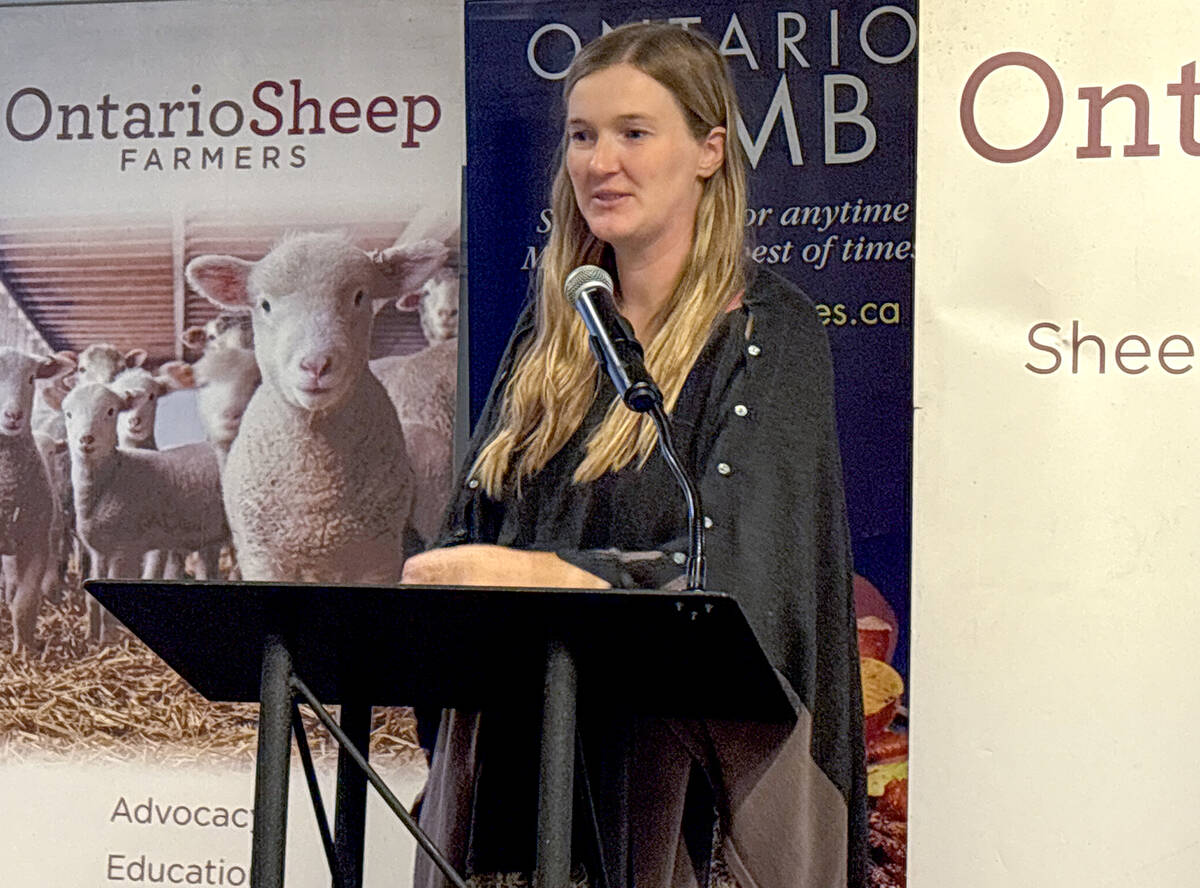Nutrient-dense aquatic food systems could play a role in providing nutritious and accessible food to food-insecure communities.
A focus on nourishment gives scope to look beyond staple foods by considering the diversity of people and the benefits they derive from food, said Dr. Shakuntala Haraksingh Thilsted, WildFish’s global lead for nutrition and public health, during the recent Arrell Food Summit.
“When I started (my research), this was very different, because … many people start with production, and they start with the inputs to production,” she said. “I think the difference starts with a people-centred approach.”
Read Also

Footflats Farm recognized with Ontario Sheep Farmers’ DLF Pasture Award
Gayla Bonham-Carter and Scott Bade, of Footflats Farm, win the Ontario Sheep Farmers’ 2025 DLF Ontario Pasture Award for their pasture management and strategies to maximize production per acre.
Why it matters: An expert says that aquatic foods should need to be prioritized in food and nutrition systems around the globe.
Thilsted said that consideration of who eats food, who produces it and who gets it onto the table provides unique entry points into the food system.
“It gives us the opportunity to get the best benefits, and all the benefits, across many sectors from using the word nourishing rather than just feeding,” she said. “And when we begin with nourishing, again, it’s very important that we start with the people that we want to nourish – with our focus on women and young children in the first 1,000 days of life.”
Using her agriculture, nutrition and physiology background, Thilsted concentrated on the women and children in the communities she studied, listening to their issues, challenges and solutions.
“In Bangladesh, I zoned in on small fish because when you talk to women, they will tell you, ‘when the rains come, and we eat small fish, we see better,” she said. “I can link that to small fish having high quantities of vitamin A.”
It’s easier to craft solutions when armed with direct insight, especially when solutions are co-created by people at all levels of the food system, starting with government policymakers.
Working with common fish species in Bangladesh, Cambodia, Denmark and other countries, Thilsted looked at the multi-nutritional benefits found in smaller fish.
“To my surprise, they are what you would call superfoods because they contain many minerals, essential minerals — calcium, iron, zinc to name a few and vitamin B 12, which is so very important for cognition.”
Thilsted focused on using pond polyculture in the four million Bangladeshi household ponds to increase small and large fish productivity and nutritional quality.
“If you give the knowledge to the parents, they will use it to feed their children, to find ways to feed their children the superfoods so they can benefit from them,” she said, adding that providing nutrition information is critical.
Thilsted’s insights and innovations in holistic, nutrition-sensitive approaches to aquatic food systems steered conversations toward improving health and nutrition, said Dr. Rashid Sumaila, a University of British Columbia professor.
“Most of us are talking about food quantities and food security,” said Sumaila. “(She is) renowned for developing nutrition-sensitive approaches to aquatic food systems that successfully improved the nutrition and health of millions of women and children.”
Thilsted’s message insists that the system apply to low- and middle-income countries, particularly Asia, Africa and the Pacific, said Sumaila.
At the UN 2021 Food Systems Summit, the scientific group recognized aquatic foods as one of the seven solutions put forward.
Blue Food Assessment research indicates that, with sustainable management of aquatic food, it’s possible to produce six times more food than is produced today. It is an accessible source of superfoods saturated with micronutrients and essential fatty acids.
Aquatic food must be central to the global development agenda concerning investment in research and innovation, said Thilsted.
However, a holistic perspective that encompasses the diverse range of food ensures it is also culturally acceptable.
Thilsted said the world had witnessed the cost of modern-day starvation because, despite the quantity of food produced, traded and exported, it is assessed on its monetary value rather than its ability to nourish.
“I think we are better than that, as researchers, as policymakers, the private sector – we are better than that,” she said. “We can both give the sufficient quantity, but we can do that with diverse nutritious foods, not just the staple food. Not just maize in Africa or rice in Asia. We can do better.”
If African and Asian diets were analyzed and assessed as thoroughly as the Mediterranean diet, one could draw similarities, Thilsted said. For example, the Bangladeshi plate has rice, vegetables, pulses, small fish, green chilli and lemon slices. She believes it would match the Mediterranean plate’s nourishment value.
“We’ve just scratched the surface of what we can do and how we can prioritize aquatic foods in food and nutrition systems, in the policies, the investments, the research,” said Thilsted.
“With this recognition, I do hope that we will be able to elevate the role of aquatic foods in food systems and with these superfoods, we will be able to nourish people better.”















